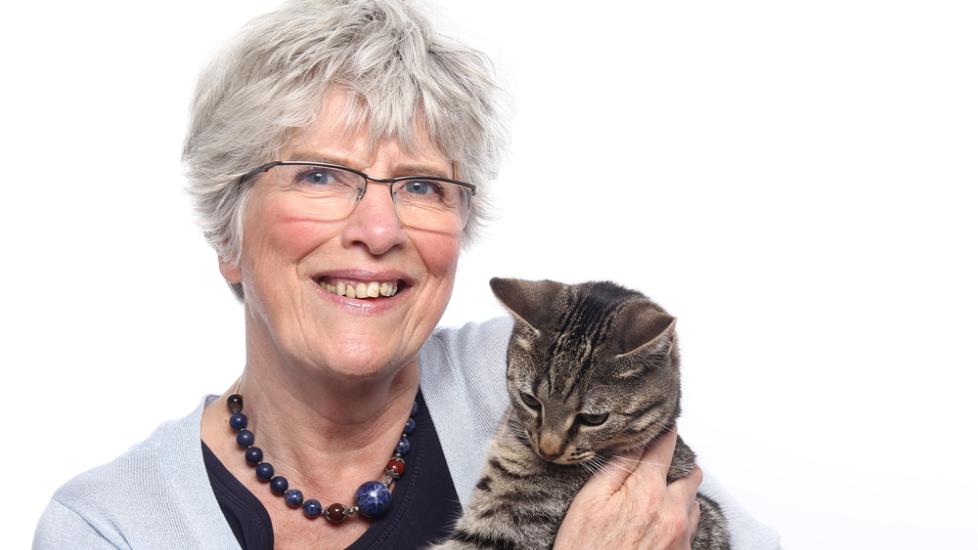It's Time to Celebrate Senior Cats
BlogPaws, a media resource for pet bloggers and social media users, has chosen August as the month to celebrate senior pets. An entire month set aside to celebrate seniors as companions is a great idea, in my opinion. I can tell you from experience that senior cats make wonderful pets.
Unfortunately, shelters and rescues are full of senior pets that are often overlooked in favor of younger animals. Kittens stand a much better chance of finding a forever home than an adult cat and many people are especially hesitant to take in an older cat, fearing that the cat may have an abbreviated life expectancy. I understand and sympathize with that perspective. But, on the other hand, many of these cats still have many good years ahead of them.
When is a cat considered to be a senior? There’s some variation and some cats do age more quickly than others, in much the same way that people age differently from one another. Generally, a cat is considered a senior at around seven years of age though. Of course, many cats live well into their teens and a few even survive into their 20s. So, a seven or eight year old cat may still have many years left to share with you. Even in the worst case scenario, when a senior cat does not survive long after adoption, providing a loving home and TLC to an animal in need is a rewarding, though admittedly sad experience.
There are lots of benefits to taking in a senior cat. In many cases, you are saving that animal’s life. Too many cats are euthanized in shelters and rescues around the country for lack of a family willing to give them a home. Another benefit is the fact that senior cats are quite often less rambunctious and mischievous than a kitten or younger cat. Though each cat is different, with a different personality and likes and dislikes, many senior cats are content to simply share your company, resting on your lap or nearby. In many cases, you won’t have to worry about spaying/neutering either. A senior cat is likely to have already been altered.
When caring for a senior cat, it’s important to realize that their needs may be different than those of a younger cat. Veterinary visits are a necessity for cats of all ages but regular veterinary care is even more important for a senior. A senior may need to visit the veterinarian more often than a younger cat. At a minimum, yearly examinations are needed but many veterinarians recommend twice yearly exams, especially for older cats. Of course, if your senior has health issues, it may be necessary to see the veterinarian even more often.
Besides veterinary care, senior cats may also require different home care than a younger cat. Arthritis is common in older cats and an arthritic senior may benefit from changes in the home environment that make access to litter boxes, perches and other places easier. Senior cats may have special dietary needs as well. I’ve written previously on tips to keep your senior cat healthy.
Senior cats are also prone to developing diseases and illnesses that are less common in younger cats. Some of these diseases are preventable. For instance, obesity is a common problem in cats of all ages and seniors are no exception. Obesity can also predispose your cat to other diseases, such as diabetes. However, with a proper diet and exercise routine, it is possible to keep your cat at a proper body weight and avoid obesity. Some of the diseases commonly encountered in seniors are treatable even if not preventable. As an example, hyperthyroidism is a disease that results in excess secretion of thyroid hormones. It is common in senior cats but there are a number of treatment options for cats with this disease.
If you’re already living with a senior cat, you probably don’t need to be sold on the idea. If you’re sitting on the fence and wondering whether adopting a senior is a good idea, take my advice. It is! Just be certain you are willing and able to take responsibility for your new pet’s needs.

Dr. Lorie Huston
Image: Shuttterstock
